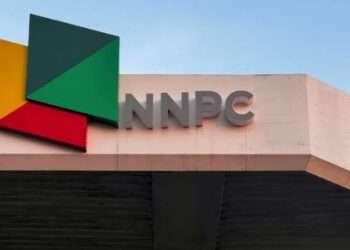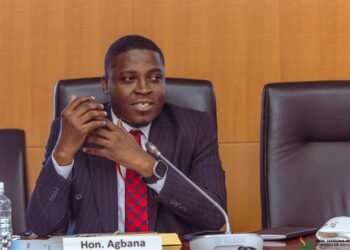The absence of continuity and coherence in national development planning has been one of the most enduring obstacles to Ghana’s socioeconomic development.
A lasting legacy of its colonial economic architecture, Ghana’s economy is still largely dependent on the export of primary commodities with little value addition, even after decades of planning.
There have been several long-term development frameworks, including the Ghana Beyond Aid Charter, the Ghana@100 Framework, the 2017 40-Year Development Plan, and Vision 2057; however, these frameworks were often disjointed, rarely utilised, and frequently abandoned when there is a change in political leadership.
In an extensive interview with the Vaultz News, Dr. Abdul Hakim Ahmed, a seasoned Political Science Lecturer at the University of Education, Winneba, delved into the root causes and proposed far-reaching reforms.
His proposals aim to consolidate Ghana’s fragmented development frameworks into a single, unified national development plan, insulated from political cycles and partisan interests.
Dr. Hakim began by underscoring the transformational benefits that a long-term national development plan could yield for Ghana. He cited global success stories such as China, South Korea, and Singapore to underscore its importance.
“When you have a sustained plan and it’s able to be implemented, we are going to have an improved society, improved economy, and the general well-being of the citizenry would also improve.”
Dr. Abdul Hakim Ahmed, a seasoned Political Science Lecturer at the University of Education, Winneba
He emphasised that in the above-mentioned countries, development is not hostage to political transition; instead, it is anchored in strategic foresight and implemented with relentless commitment over decades.
To illustrate the cost of Ghana’s inconsistent planning, Dr. Hakim pointed to the dismal state of infrastructure linking two of Ghana’s most economically significant cities: Accra and Kumasi.
“Ask people who have been travelling to Kumasi in the past twenty to twenty-five years. You realise that Accra Kumasi Road, at the beginning of the 21st century, when it was built, you could spend about three and a half hours from Kumasi if you time your travel.
“And almost a quarter of a century now, because the development of that piece of infrastructure has not moved in tandem with the population growth, now if you are not careful, in fact, the average, time it takes to travel to Kumasi from Accra, as I’m talking to you, has more than doubled.”
Dr. Abdul Hakim Ahmed, a seasoned Political Science Lecturer at the University of Education, Winneba
In his view, a unified development plan would have integrated better transport systems, including modern railways, that could reduce travel time between Accra and Kumasi to as low as one hour, driving both economic efficiency and regional integration.

A Mixture of Legacy Problems
But the consequences of fragmented planning go beyond transportation. Dr. Hakim noted that Ghana’s perennial flooding issues, unemployment, and the scourge of illegal mining (galamsey) are all symptoms of poor spatial, social, and economic planning.
“If we had long-term plans, flooding wouldn’t be a crisis we are battling every year. Unemployment, especially among the youth, would have been tackled with targeted investments and skill development”.
Dr. Abdul Hakim Ahmed, a seasoned Political Science Lecturer at the University of Education, Winneba
NDPC Institutional Shortfalls
Despite the establishment of the National Development Planning Commission (NDPC) under Articles 86 and 87 of the 1992 Constitution and its empowering Act 479 of 1994, Dr. Hakim believes that the current institutional architecture falls short of delivering the development vision Ghanaians deserve.
“The legal framework anticipates proactive leadership from the president and consistent national support. But in practice, every president comes in with a partisan lens, preferring to implement manifesto-driven policies instead of continuing long-term plans initiated by predecessors.”
Dr. Abdul Hakim Ahmed, a seasoned Political Science Lecturer at the University of Education, Winneba
This, he explained, leads to abrupt policy shifts every four or eight years, depending on election outcomes, adding that a plan that needs ten years to succeed is often disrupted midway.
This, he noted, is simply because Presidents are concerned with legacy-building and electoral visibility, but unfortunately, continuity does not always align with political interests.

The result, he argued, is a perpetual cycle of uncompleted projects and wasted resources, with each new administration discarding previous efforts in favor of a fresh start.
To break this vicious cycle, Dr. Hakim advocated for a radical overhaul of the NDPC’s structure. He strongly believes the solution lies in removing the President’s hand from appointments to the NDPC.
“We need an independent authority—completely nonpartisan—to appoint the Chairman and top officials of the NDPC. This would eliminate the undue influence of the presidency and insulate planning from partisan politics”.
Dr. Abdul Hakim Ahmed, a seasoned Political Science Lecturer at the University of Education, Winneba
Legal Reforms
But beyond institutional reform, he insisted that legal mechanisms must be put in place to compel Presidents to implement national development plans.
“Presidents must be bound by law to continue with the implementation of existing development plans. There should be accountability frameworks to ensure compliance. Failure to do so should attract legal consequences” .
Dr. Abdul Hakim Ahmed, a seasoned Political Science Lecturer at the University of Education, Winneba
Dr. Hakim pointed out that the ongoing constitutional review process offers a strategic opportunity to institutionalize these reforms.
He called on the members of the review committee to incorporate provisions that not only empower an independent NDPC but also enshrine in the constitution the obligation for successive governments to adhere to the national development plan.
“These reforms must be entrenched so no president can simply ignore them. The oversight must not lie with the presidency but with an autonomous body rooted in law”.
Dr. Abdul Hakim Ahmed, a seasoned Political Science Lecturer at the University of Education, Winneba
Dr. Hakim expressed cautious optimism when asked whether Parliament could provide this oversight. While acknowledging the rubber-stamp tendencies of Parliament due to executive influence, he believes an innovative legal framework can be crafted to create a genuinely independent body.
“Talk to any legal expert—there are ways to design an institution that is completely insulated from executive or legislative manipulation. We just need the political will to do it”.
Dr. Abdul Hakim Ahmed, a seasoned Political Science Lecturer at the University of Education, Winneba
He also emphasized the importance of incorporating Ghanaian cultural perspectives into the planning process.
“One of the major errors we keep making is importing foreign models of governance and planning without adapting them to our cultural realities. If a development model is not in sync with the way people live, it will always fail”.
Dr. Abdul Hakim Ahmed, a seasoned Political Science Lecturer at the University of Education, Winneba
For Dr. Hakim, true development cannot be imposed from above or borrowed wholesale; it must be rooted in the lived experience, traditions, and aspirations of the people it is meant to serve.
Call for Education Reform
Crucially, Dr. Ahmed drew attention to the pivotal role education plays in national development planning.
He emphasized that for any long-term development plan to succeed, Ghana must critically review its educational system and curriculum to align with its developmental aspirations.
According to him, Ghana’s current education system often produces graduates who are ill-prepared for the practical challenges of the job market and national development.
“We have focused more on social sciences, humanities, and others. I’m not saying they are not good, but you have to be able to, develop your citizens with some basic skills to be able to stand on their own.
“The so-called TVET programs are good, but how far have we been able to implement them? and how far have we been able to conscientize parents to allow their children to accept and enrol on some of those programs?”.
Dr. Abdul Hakim Ahmed, a seasoned Political Science Lecturer at the University of Education, Winneba
He stressed that a reformed educational system must be practically oriented, with emphasis on vocational and technical skills, research, and innovation.
Lessons from Asia
Dr. Hakim also addressed lessons Ghana can draw from Asian nations that have achieved extraordinary development progress.
In China, Singapore, and South Korea, national planning, according Dr Hakim enjoys bipartisan support and is characterized by long-term vision, consistent implementation, and robust societal consensus.
“Their plans are supported not just by political parties but by society at large. That societal consensus is crucial,” he explained. In contrast, he said, Ghana suffers from sharp political and ethnic divisions that weaken national unity and institutional effectiveness.

“There’s no state institution in Ghana that you walk into and don’t feel the impact of partisanship or ethnic bias. It’s a national crisis,” Dr Hakim decried. Ultimately, Dr. Hakim’s views underscored a crucial truth: without a unified and nonpartisan national development plan, Ghana’s progress will remain fragmented and haphazard.
He issued a passionate call to action to both policymakers and the public: “We cannot develop as a nation if every administration starts from scratch. We need to build a nation, not political legacies.”
In sum, the current trajectory of Ghana’s development is unsustainable. The ad hoc, government-by-government approach to planning has produced inconsistent results, wasteful expenditure, and widespread disillusionment among citizens.
For Dr. Abdul Hakim Ahmed, the way forward is clear: Ghana must consolidate its national development efforts into a unified, long-term strategy protected by law and guided by an independent, professional institution free from political manipulation.
If such a framework is institutionalised, Dr. Hakim is confident that Ghana will not only solve its current challenges—from transportation and flooding to unemployment and poor sanitation—but also unleash its full developmental potential in the decades ahead. The time to act, he insisted, is now.
READ ALSO: President Mahama Champions Unified Front for African Renaissance



















